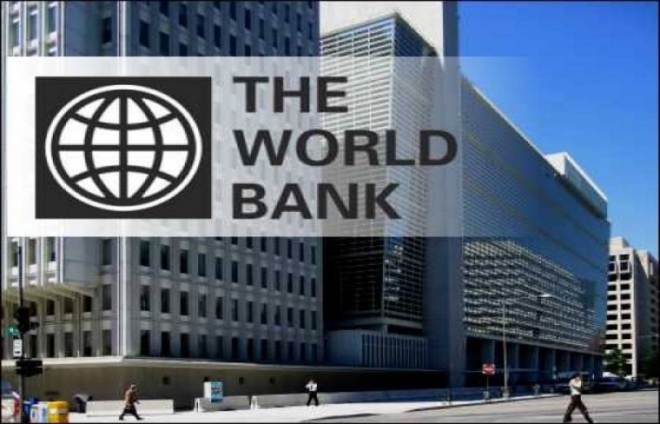The World Bank has revised Ghana’s Gross Domestic Product (GDP) growth in 2023 to1.5% from the earlier 1.6%.
This is far lower than the revised 2.5% GDP growth for Sub-Saharan Africa.
Ghana will now be placed in the 40th position from the earlier 42nd in Sub-Saharan Africa.
However, in 2024, the economy is expected to expand by about 3.6%, but significantly below its average pre-pandemic growth of 6. %.
In its October 2023 Africa Pulse Report, the Bretton Wood institution said growth will be held back by high and persistent inflation, lower credit as a result of elevated interest rates, and weakness in the energy sector. These drivers will operate through a slowdown in the growth of household consumption and investment.
Again, the Washington based multilateral institution said efforts toward fiscal consolidation will also hamper aggregate demand in the economy.
“From the production perspective, economic activity is dampened by poor performance in agriculture due to high input prices and the impact of the cocoa swollen shoot virus. In contrast, the extractive sectors appear to be supporting growth thanks to robust demand for the country’s oil and gold”.

Furthermore, it said commitment to restore debt sustainability is reflected in the completion of a comprehensive domestic debt exchange programme and its proactive negotiation with external creditors, as well as the implementation of a series of fiscal consolidation measures.
Therefore, eliminating monetary financing of the deficit and restricting central bank foreign exchange market interventions might help to reduce inflation, reconstitute reserves, and bolster investor confidence.
Ghana's first quarter growth rate exceeded market expectations
The World Bank also said during the first quarter of 2023, economic performance in Ghana exceeded market expectations.
GDP growth accelerated to 4.2% year-on-year, from 3.2% in the last quarter of 2022.
The Agriculture and the Service sectors where the largest contributors to the acceleration of growth, while industrial output—particularly construction—recorded a downturn.
7 African economies growing below average growth
Furthermore, the Bretton Wood institution said among the 10 largest economies in Sub-Saharan Africa— which represent more than three-quarters of the region’s GDP—seven are growing at rates that are below their long-term average growth.
Ghana, Sudan and Angola are among the countries with weaker performance in 2023 compared to their 2001–19 growth rates.
“However, growth is expected to accelerate for most countries as the predicted annual average growth rate for 2024–25 is higher than that of 2023 for 39 of 47 countries in the region”. It pointed out.
Latest Stories
-
2024 Election: I am sad EC disqualified me, but I endorse CPP’s candidate – PNP’s Nabla
14 mins -
I want to build a modern, inclusive country anchored by systems and data – Bawumia to CSOs
15 mins -
Miss Health Ghana 2024: Kujori Esther Cachana crowned new Health Ambassador
23 mins -
Livestream: The manifesto debate on WASH and climate change
29 mins -
Alan Kyerematen saddened by NDC and NPP’s neglect of Krofrom Market in the Ashanti Region
32 mins -
CSIR Executive Director urges farmers to adopt technology for improved farming
46 mins -
Football Impact Africa’s Ghetto Love Initiative inspires change in Teshie
57 mins -
Peter Toobu calls for tighter border security over uncovered weapons at Tema Port
60 mins -
Gov’t has failed its commitment to IPPs – Ablakwa
1 hour -
Sell Chrome to end search monopoly, Google told
1 hour -
KATH to install seven new dialysis machines by end of November
1 hour -
Walewale: Police confiscate 37 bags of cocoa beans suspected of being smuggled out of Ghana
1 hour -
‘Expired’ Rice Scandal: FDA confirms rice was safe for consumption after rigorous lab tests
2 hours -
Many women have experienced intimate partner violence – Angela Dwamena Aboagye
2 hours -
Power challenges persist due to government’s mismanagement of revenues – Okudzeto Ablakwa
3 hours

